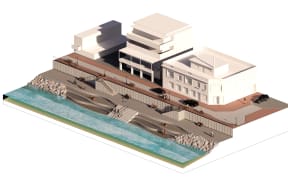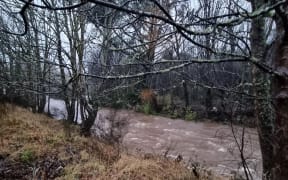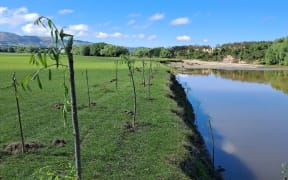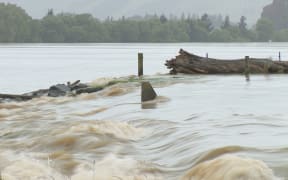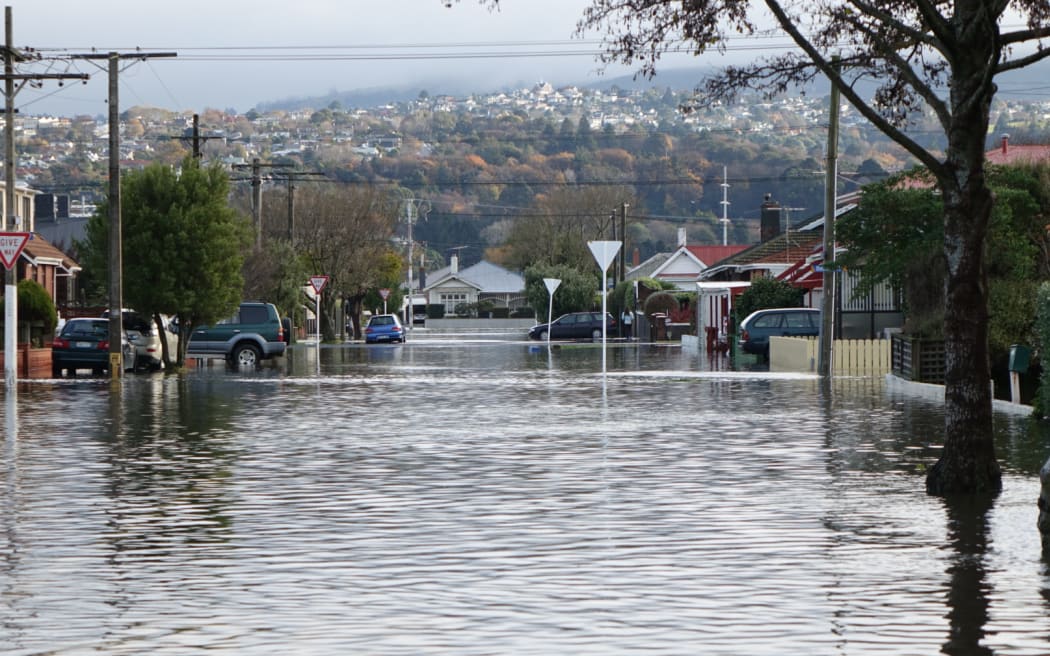
Flooding near Hargest Crescent in South Dunedin in June 2015. Photo:
The Dunedin City Council is gearing up for a conversation about the future of its most densely populated area.
The wider South Dunedin basin was swamped by floodwaters in 2015 and is at risk from climate change and rising groundwater.
The council's South Dunedin Future programme manager, Jonathan Rowe, said the area - home to 13,000 people - was facing a complex web of issues.
"We've got a whole lot of challenges in South D, mostly around water - rising groundwater, sea level rise, increased rainfall events - they're the sort of challenges we're going to be facing in the future. So what we've been looking at is how do we tackle a challenge of that complexity," Rowe said.
The floods of 2015 demonstrated the difficulties confronting South Dunedin, and the impact of Cyclone Gabrielle and other weather events in the North Island earlier this year were a lesson in the dangers of a warming world.
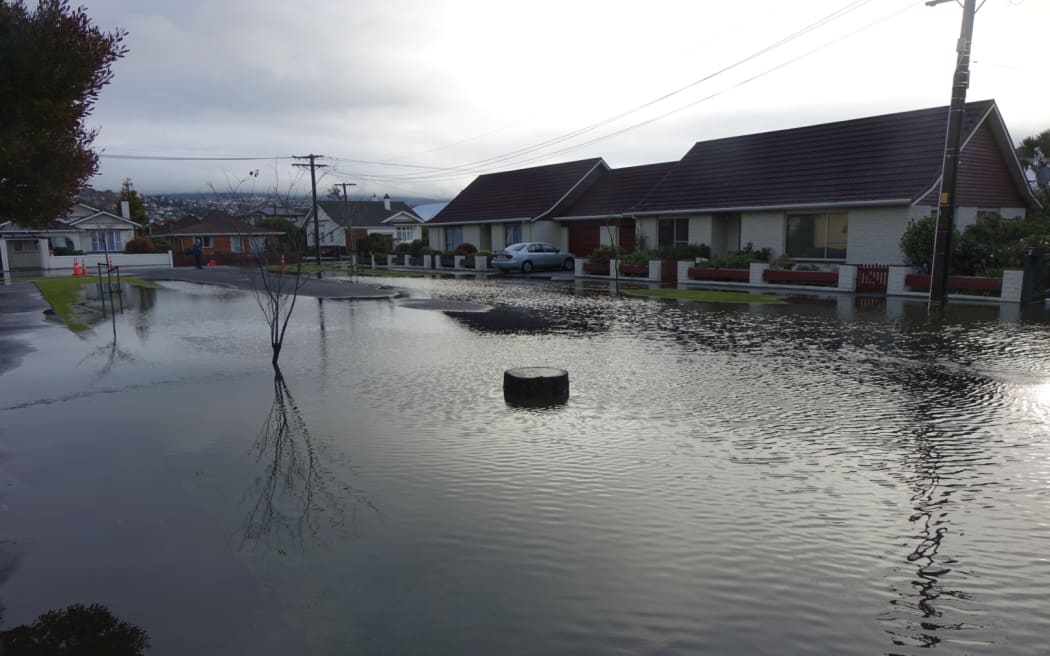
Houses affected by flooding in June 2015. Photo:
That was why having hard conversations now was so important, Rowe said.
"Everything's on the table. This is a long-term complex problem so there's not going to be one quick fix or solution. We're not going to be able to build something or create something or do something that will fix this."
It meant a future South Dunedin might look different to what was there now.
"Absolutely, managed retreat is going to be part of the conversation," Rowe said.
"But it's only one option on the table. There's lots of things we can do in a hard infrastructure space - pumps, pipes, walls, etc. There's also lots you can do with nature-based solutions - how do we use wetlands, how do we use swales, how do we create natural environments that might help buffer some of the worst effects of these storms?"
Rowe knew managed retreat would be hard to hear for some, but it was why over the next few years the council was planning ahead several decades for South Dunedin's future. Managed retreat did not mean abandoning South Dunedin, but potentially strategically leaving certain areas to nature and intensifying others.
It was all about finding a balance between people, water and space, and Rowe was optimistic everyone could win from the process.
But it would mean trade-offs and asking hard questions, he said.
"What do people want in the future?
"What do they want to protect? What do they want to enhance or see in maybe a better version of South D? And then what options do we have on the table for tackling those challenges and realising the vision that people have got for the place?"
Ocean Beach shows the way
St Clair Action Group co-chair Richard Egan said he was optimistic about the process, especially after the council adopted a similar approach to planning the future of Ocean Beach.
Ocean Beach and its dune network were central to protecting South Dunedin from the sea.
Egan believed the area could have a brighter future, even if it was a little different to right now.
"I really do and I think that's a great vision," he said.
"The fact we're including GNS scientists, we're including what I would call an evidence-informed approach as well as listening to what South Dunedin communities want, is quite hopeful."
But Ray Macleod, of the Greater South Dunedin Action Group, said any talk of managed retreat was alarming and premature.
"We've invested billions and billions of dollars over 175 years building up a community, which in reality will never get abandoned. So the definition out there in the public is very much that managed retreat is abandonment," he said.
He was concerned what that meant for residents' "economic and emotional well-being".
Macleod wanted to see alternative infrastructure solutions and cost-benefit comparisons.
The Dunedin City Council will be consulting with the community over the latter half of the year about its vision for the area.

